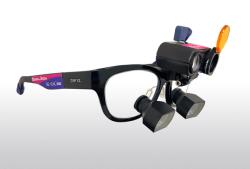- About Us
- Advertise
- Editorial
- Contact Us
- Terms and Conditions
- Privacy Policy
- Do Not Sell My Personal Information
© 2025 MJH Life Sciences™ and Dental Products Report. All rights reserved.
Is staying hydrated destroying children's teeth?
Hydration is crucial when working out or playing sports-but now, researchers say, hydrating is actually destroying children’s teeth.
Hydration is crucial when working out or playing sports-but now, researchers say, hydrating is actually destroying children’s teeth.
New research out of Cardiff University found that almost 90 percent of students ages 12-14 face an increased risk of tooth erosion due to regular social consumption of sports drinks. The sugary, low pH level drinks lead to a higher rate of dental caries and tooth enamel erosion, as well as obesity and other health problems. The beverages, although designed for athletes for performance-enhancing purposes, are popular with the children because of their sweetness, low cost and prevalent availability. Only 18 percent of the survey participants reported partaking in the sports drinks for enhancement of sporting ability.
“The proportion of children in this study who consume high carbohydrate drinks, which are designed for sport, in a recreational non-sporting context is of concern,” comments Dr. Paul D. Jackson, president of the FSEM UK.“Sports drinks are intended for athletes taking part in endurance and intense sporting events, they are also connected with tooth decay in athletes and should be used following the advice of dental and healthcare teams dedicated to looking after athletes. Water or milk is sufficient enough to hydrate active children, high-sugar sports drinks are unnecessary for children and most adults.”
To study the rate of sports-drink consumption among children, questionnaires were distributed to four schools in South Wales. Out of the 160 respondents, 89.4 percent reported drinking the sugary beverages, with 50 percent of that group said they had them at least two times per week. 90 percent of the respondents also reported that the “nice taste” of the sports beverages was their main motivation for drinking them. The study also found that more boys drank sports drinks during physical activity than girls (77.9 percent of boys, versus 48.6 percent of girls), while girls reported a higher rate of drinking them socially (51.4 percent versus 48.5 percent).
Related reading: Is dental anesthesia destroying children's teeth?
The study also found that many of these sports drinks are being marketed at children in this age group.
“Sports drinks are rarely a healthy choice, and marketing them to the general population, and young people in particular, is grossly irresponsible,” says Russ Ladwa, chair of the British Dental Associtation’s Health and Science Committee. “Elite athletes might have reason to use them, but for almost everyone else they represent a real risk to both their oral and their general health.”
Continue to page two for more...
Elite athletes are however also not immune to the detrimental dental effects of these sports drinks, as recent studies have shown. Research published in the British Journal of Sports Medicine reported recently that nearly four out of 10 professional soccer players in the United Kingdom have active tooth decay, while another study published in the Scandinavian Journal of Medicine and Science in Sports discovered that runners and triathletes had significantly higher levels of tooth erosion than non-athletes. Sports drinks were cited as a contributing factor in both.
Related reading: Runners at higher risk for tooth decay
“The triathlete’s high carbohydrate consumption, including sports drinks, gels, and bars during training, can lower the mouth’s pH level below the critical mark of 5.5,” said Cornelia Frese, author of the study published in the Scandinavian Journal of Medicine and Sciences in Sports. “That can lead to dental erosion and caries. Also, the athletes breathe through the mouth during hard exercise. The mouth gets dry, and produces less saliva, which normally protects teeth.”
Since many parents are not aware of the dangers these beverages present to their children’s oral health, it is important for dental health professionals to educate both children and parents on the potential problems consumption of sports drinks can pose for dental health.
Trending article: Study finds children of stressed mothers are more likely to develop cavities
“Dental health professionals should be aware of the popularity of sports drinks with children when giving health education or advice or designing health promotion initiatives,” states Maria Morgan, Senior Lecturer in Dental Public Health at Cardiff University.
The full study, “A survey of sports drinks consumption among adolescents,” was published in the British Dental Journal.



